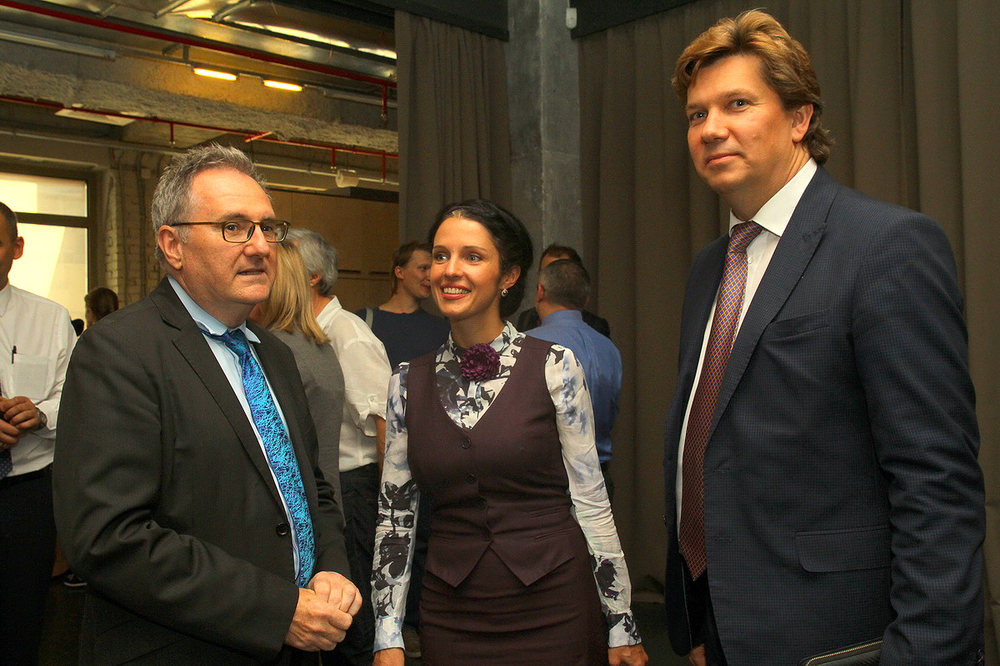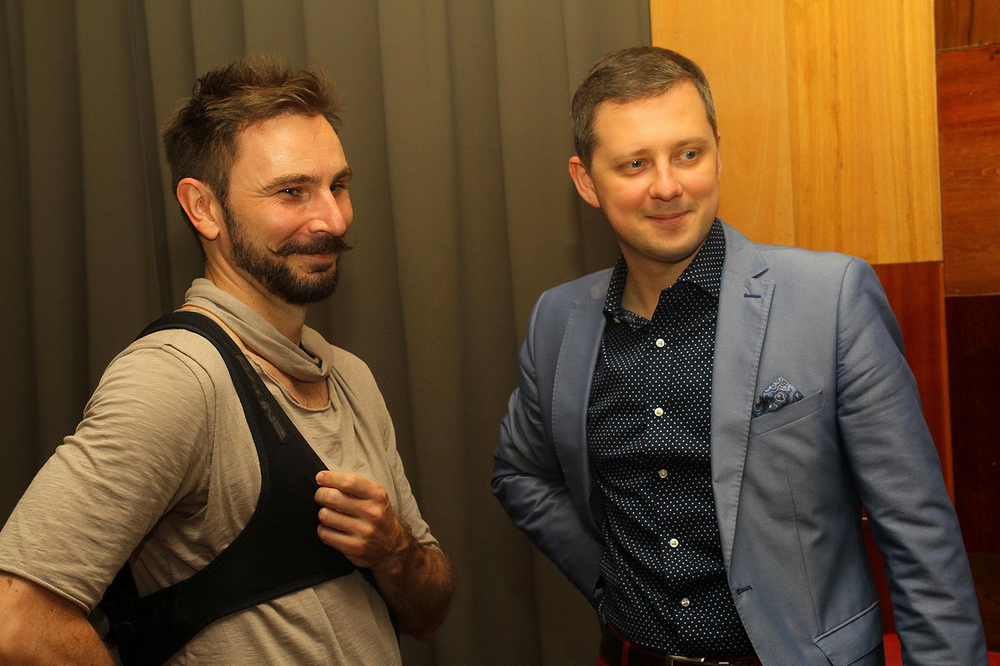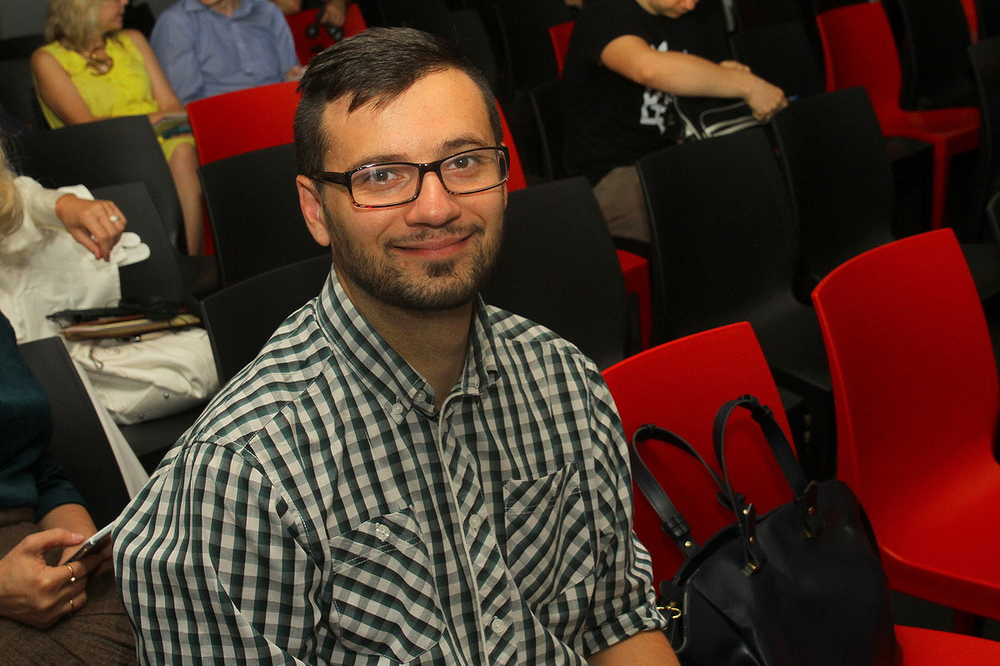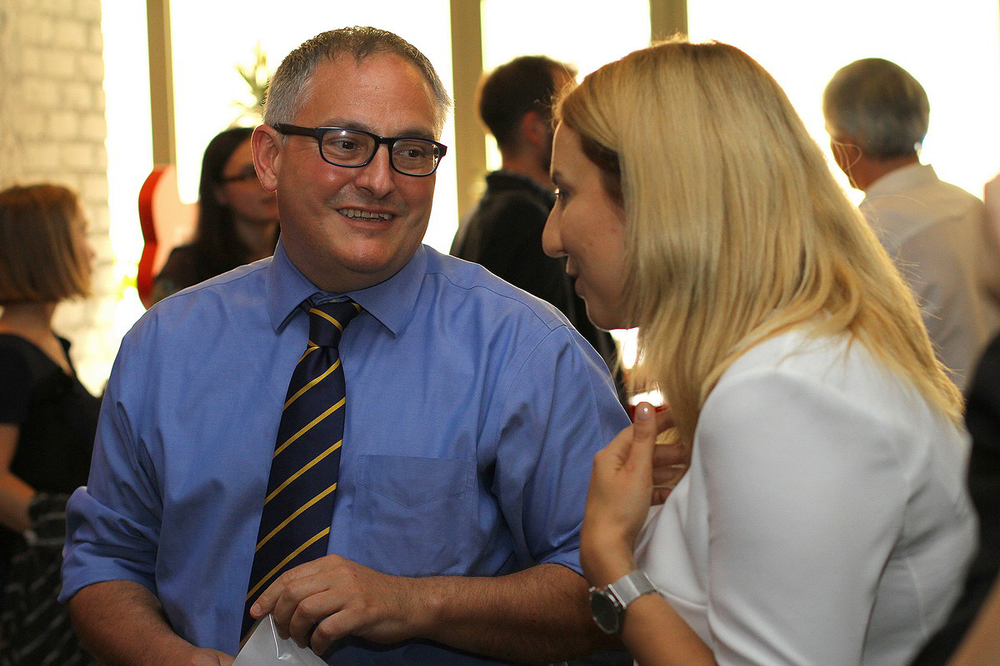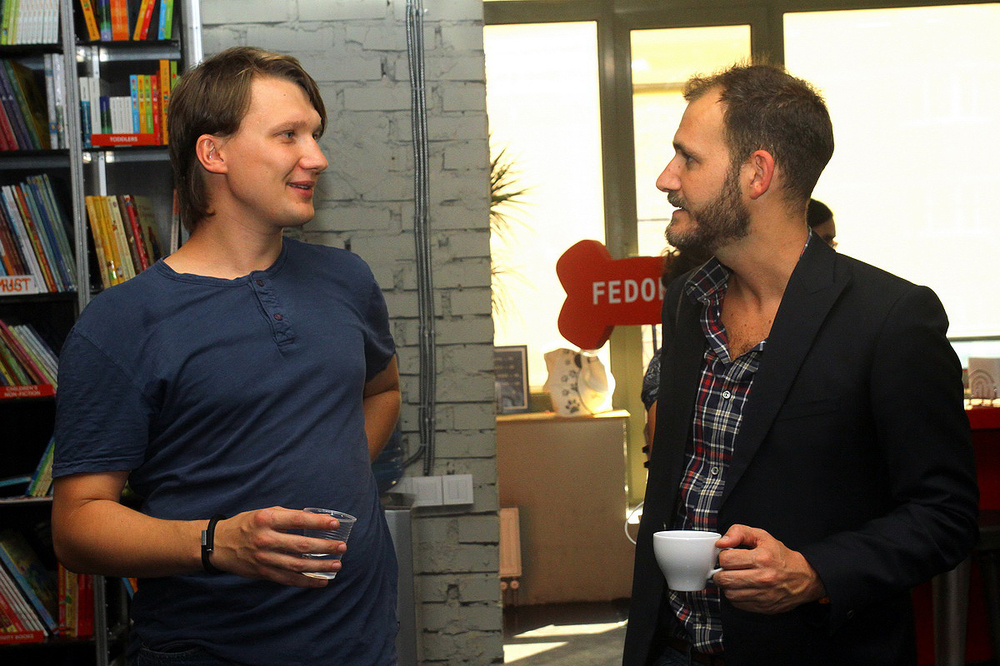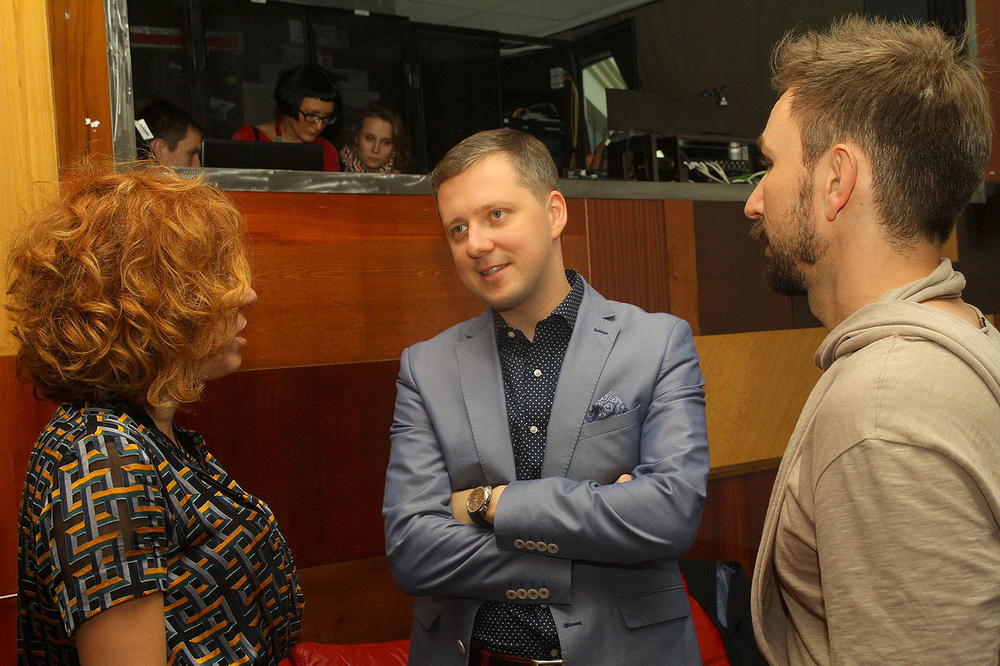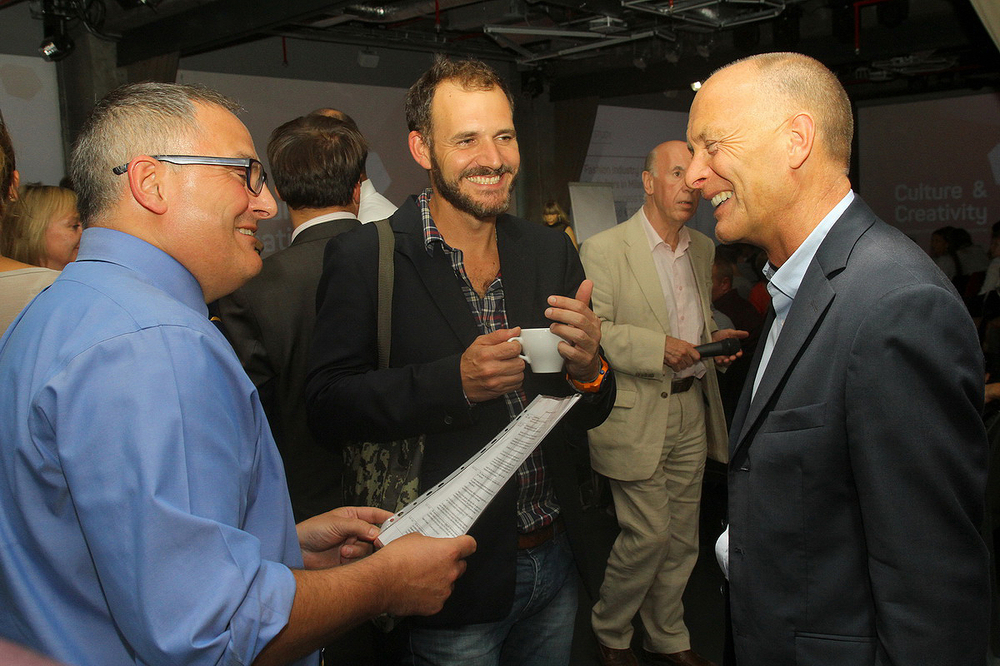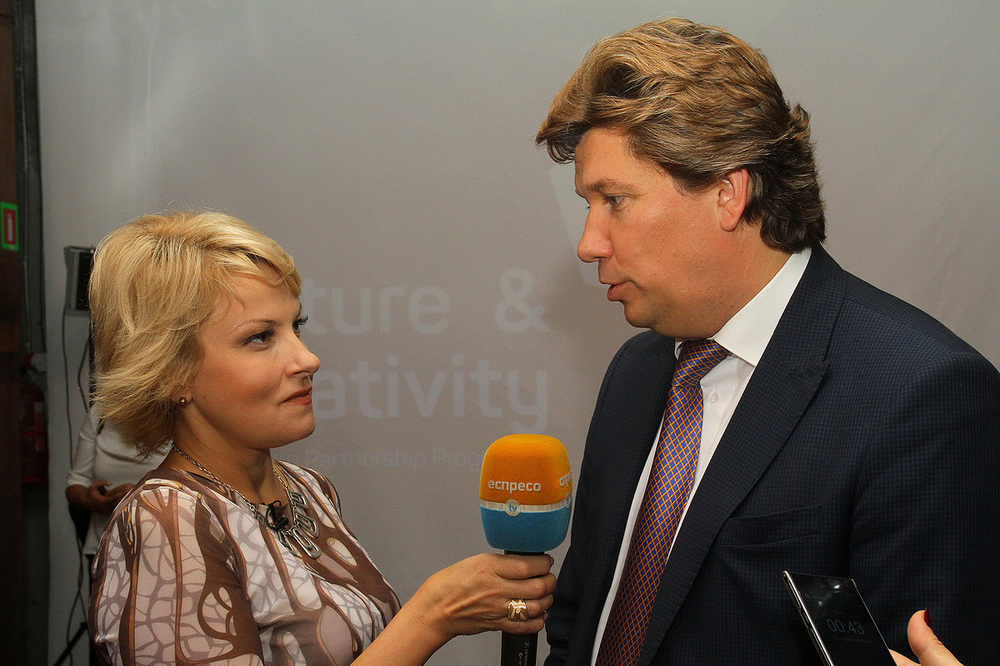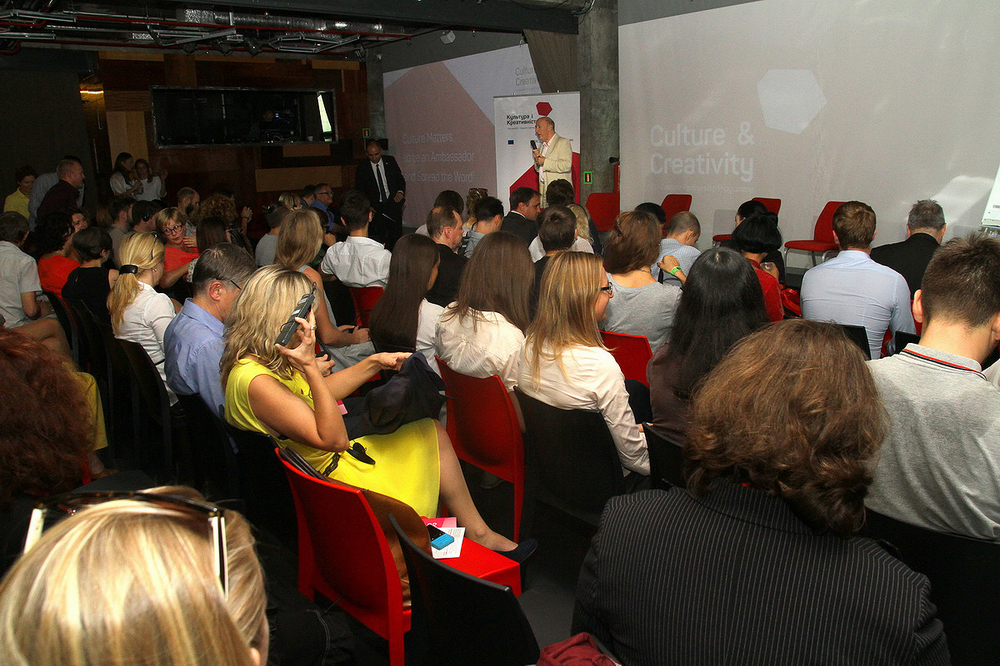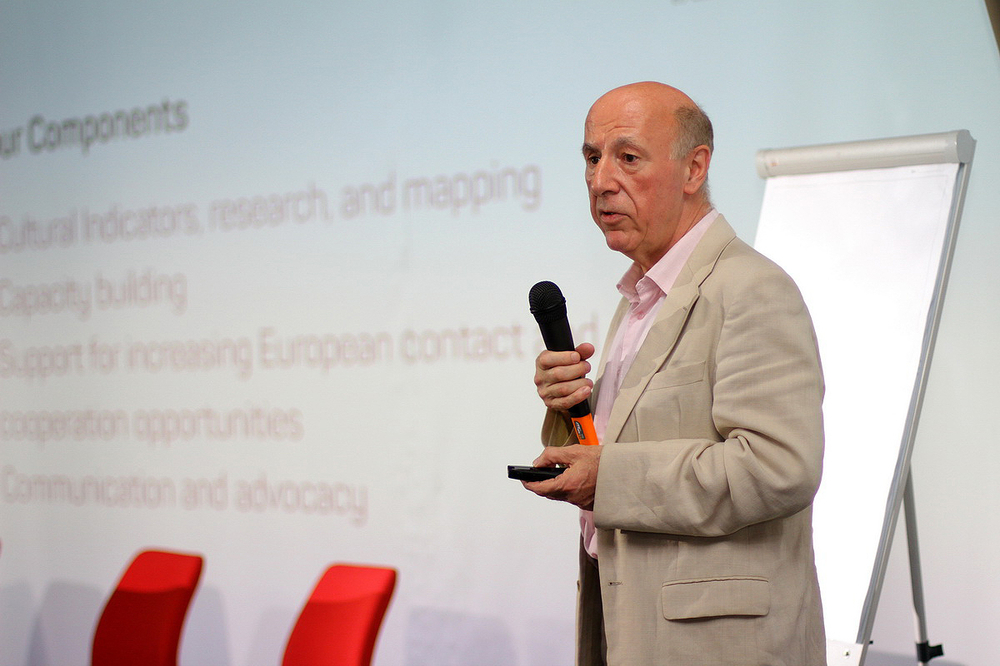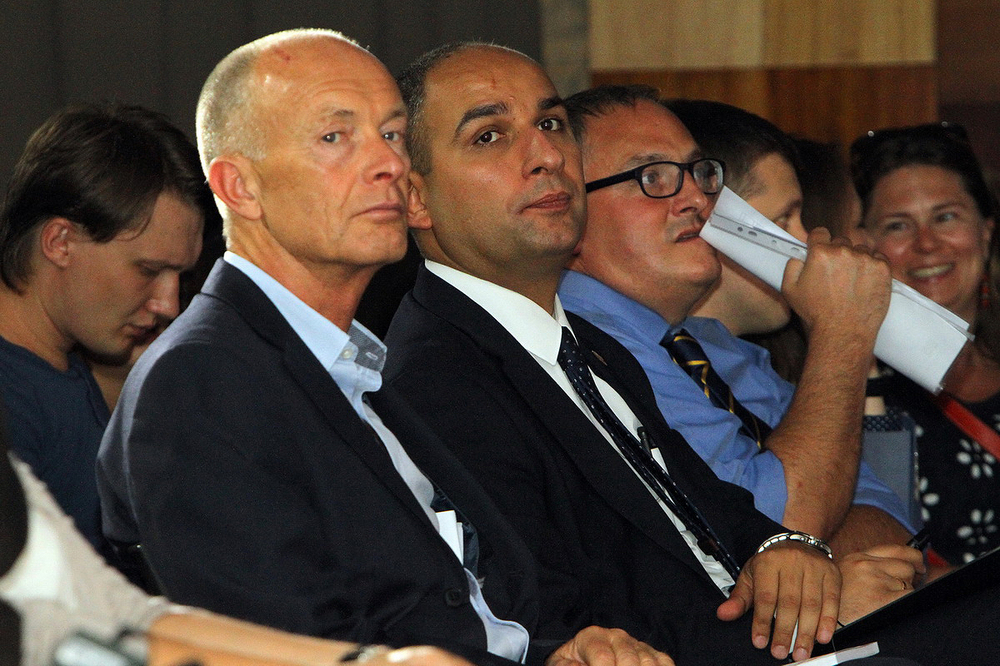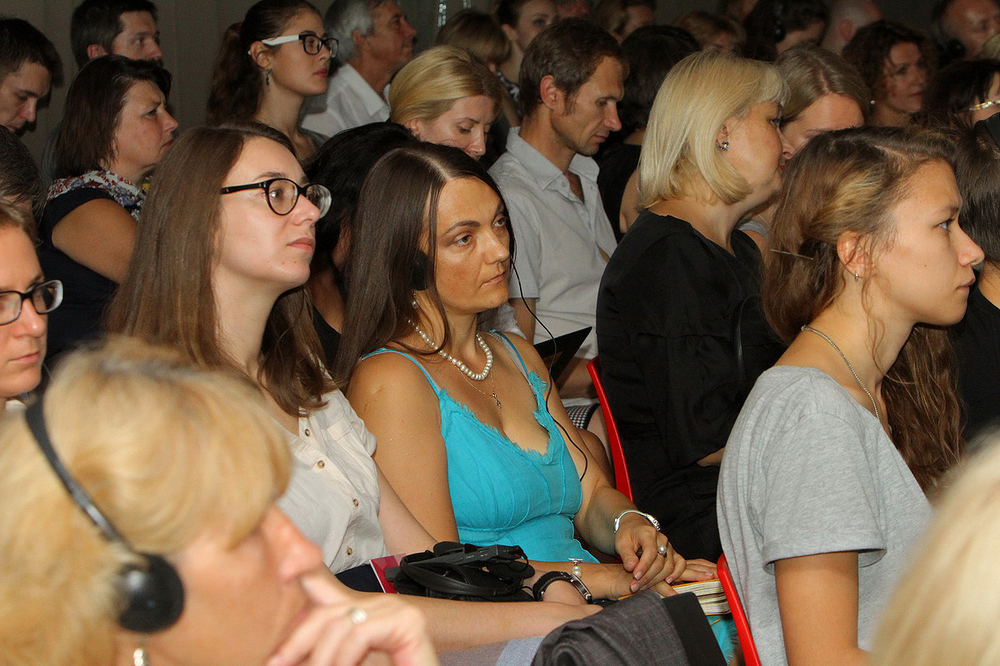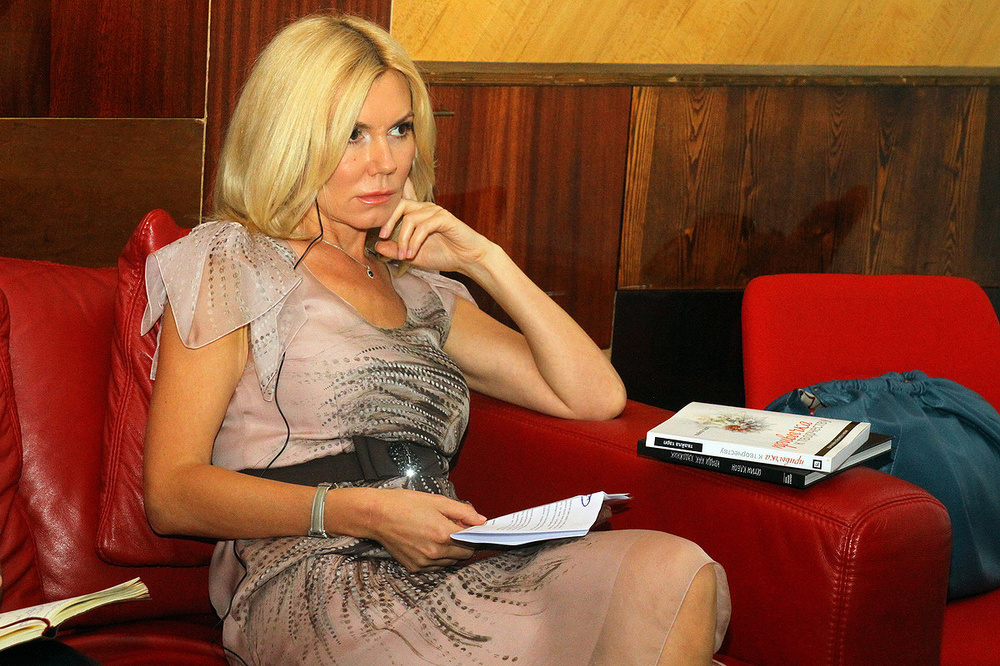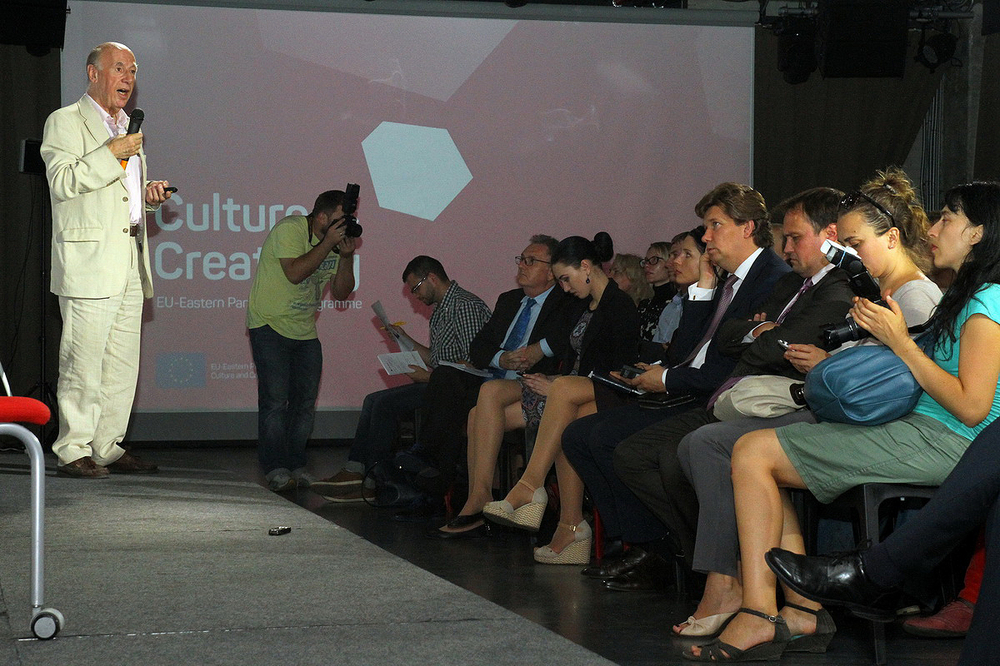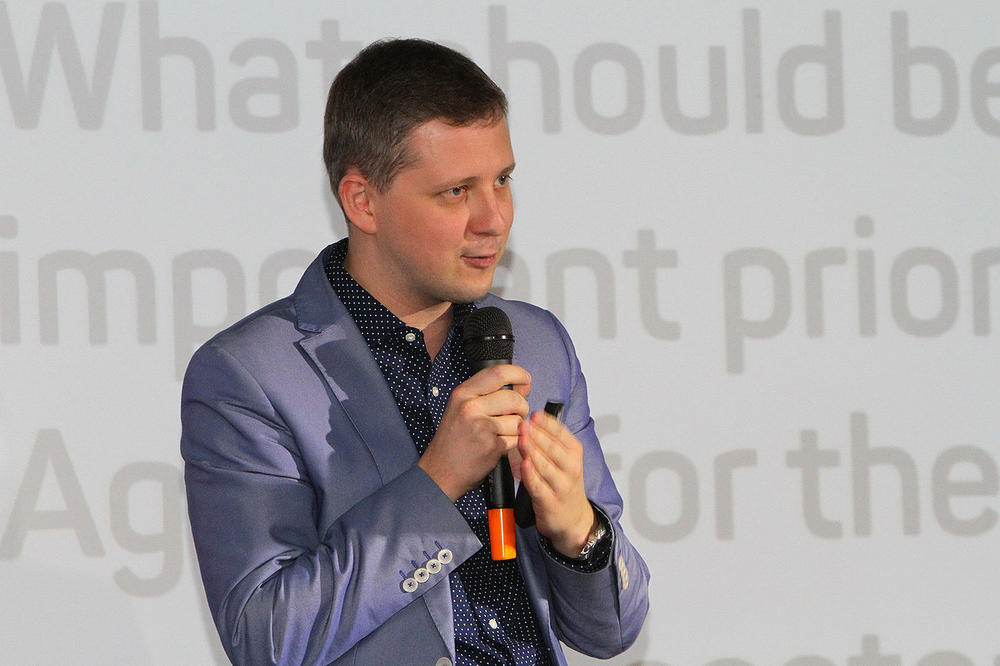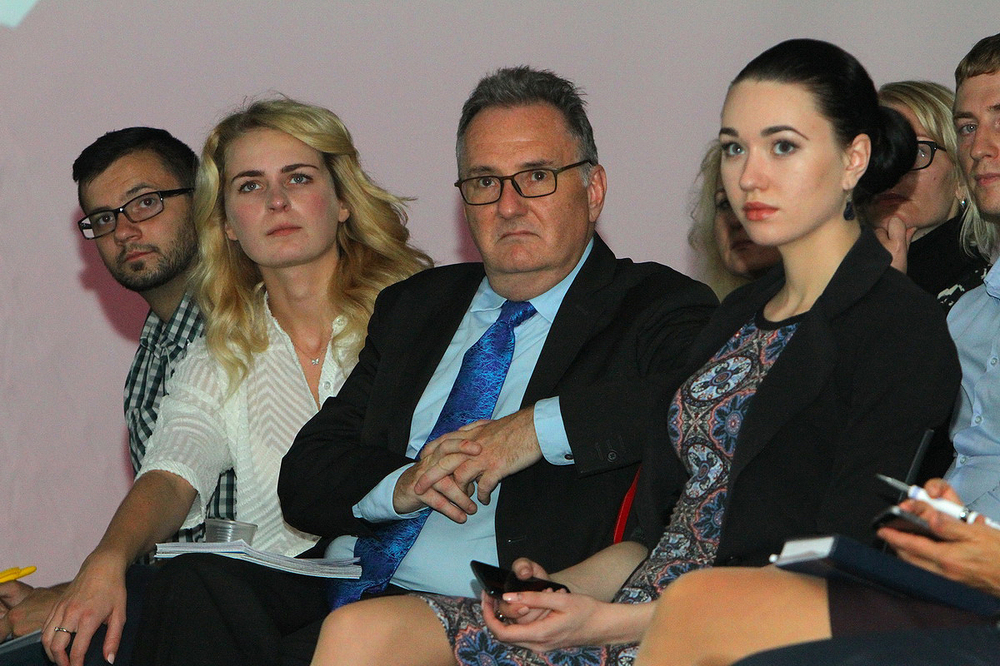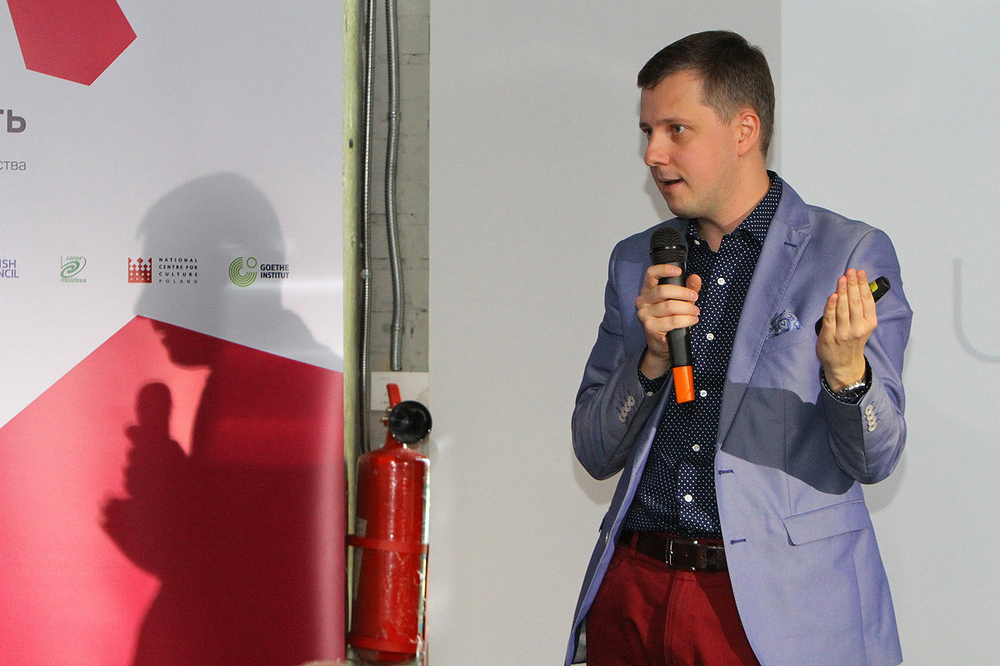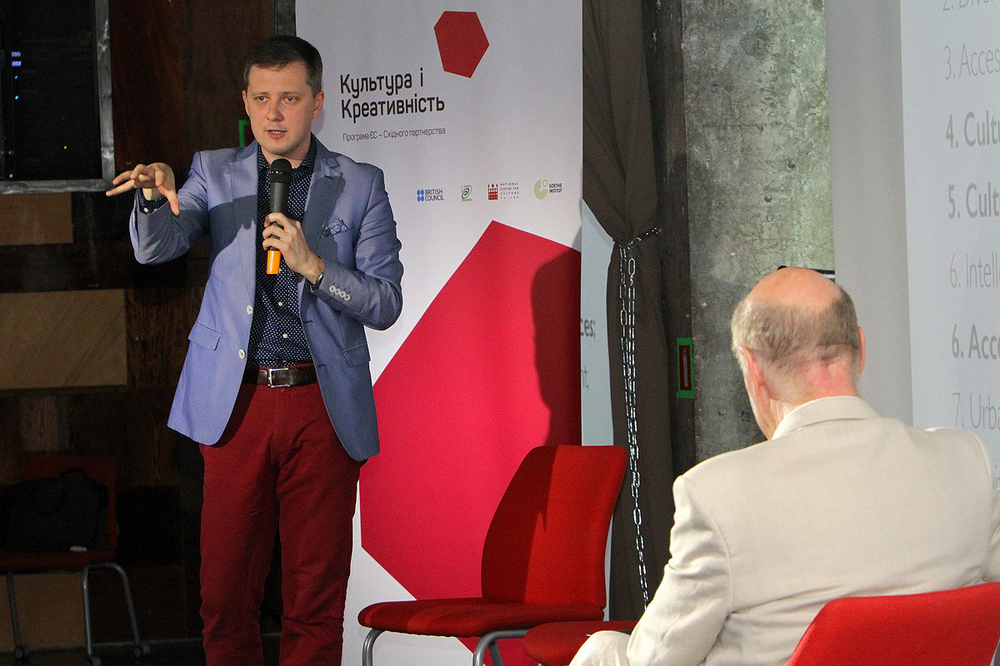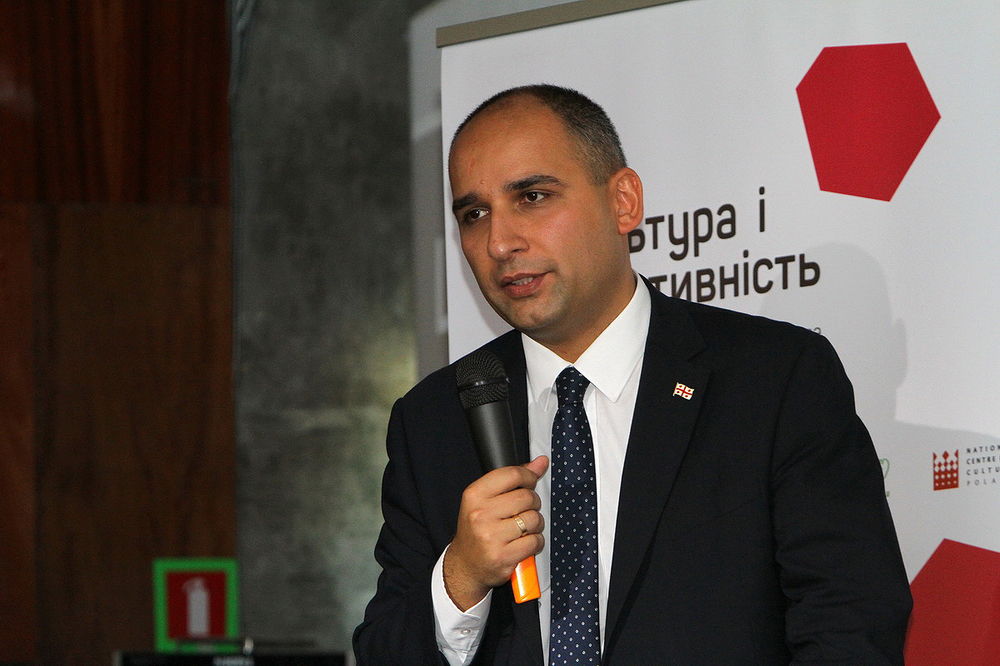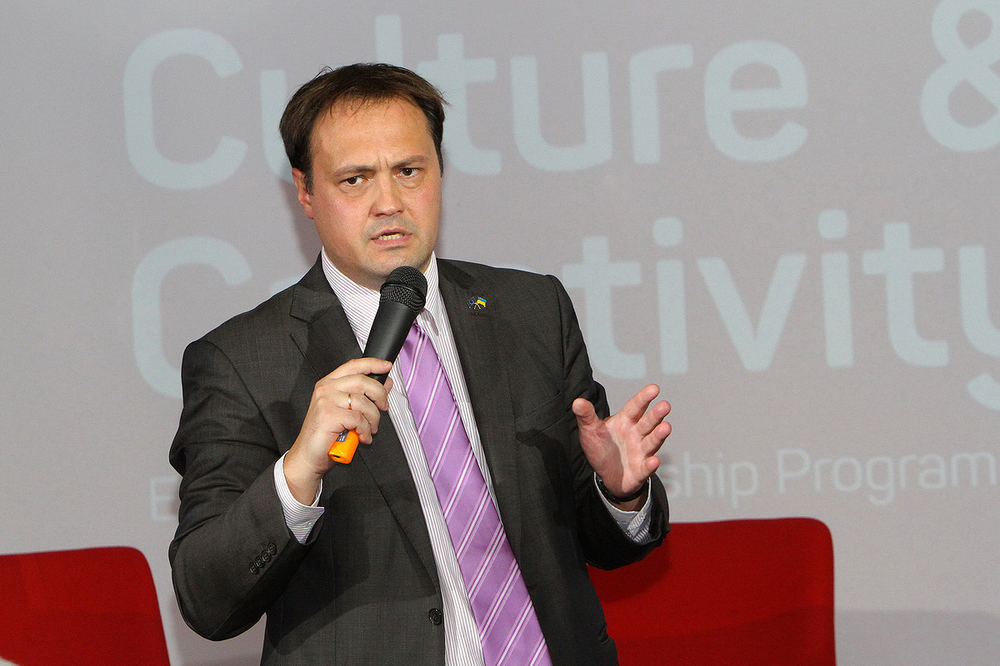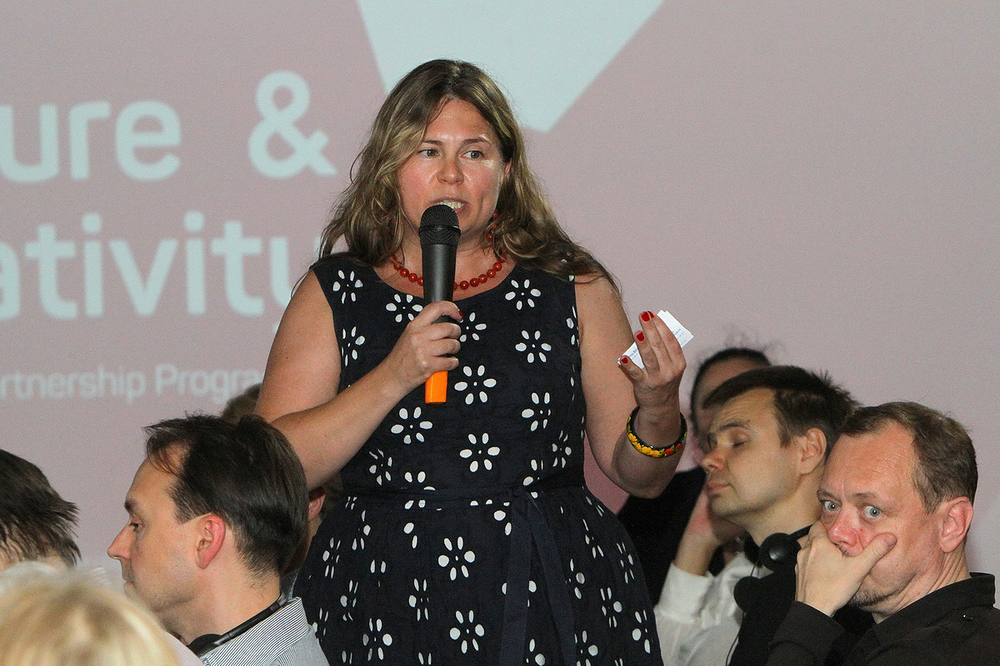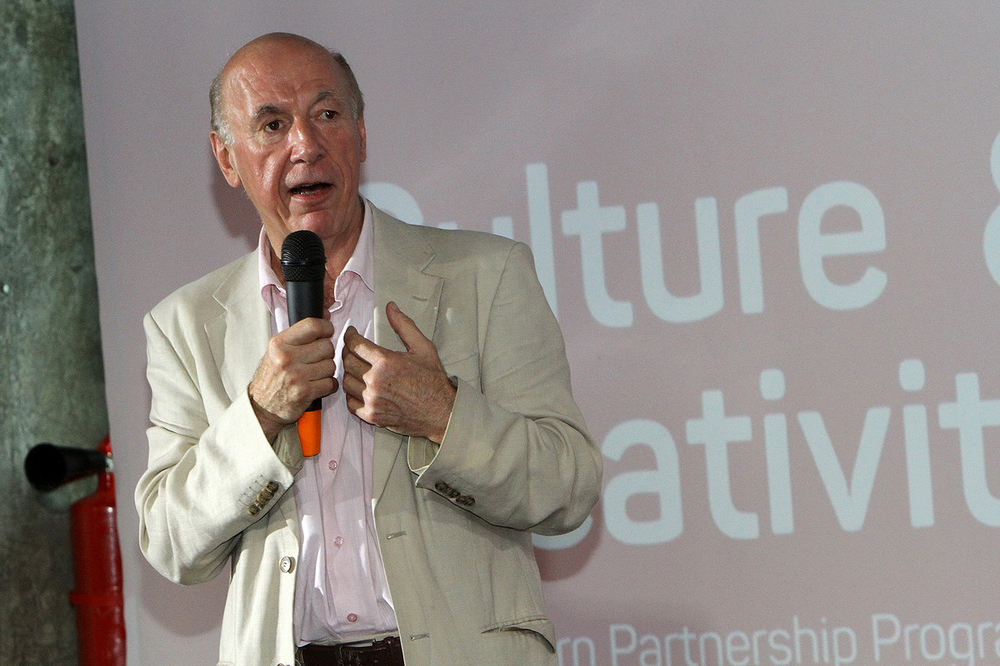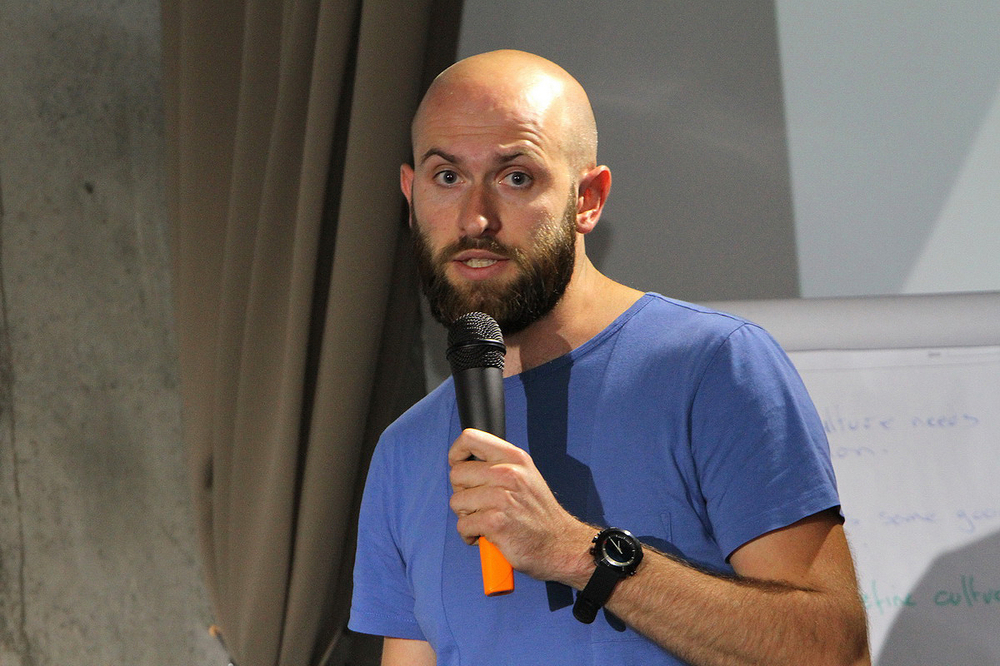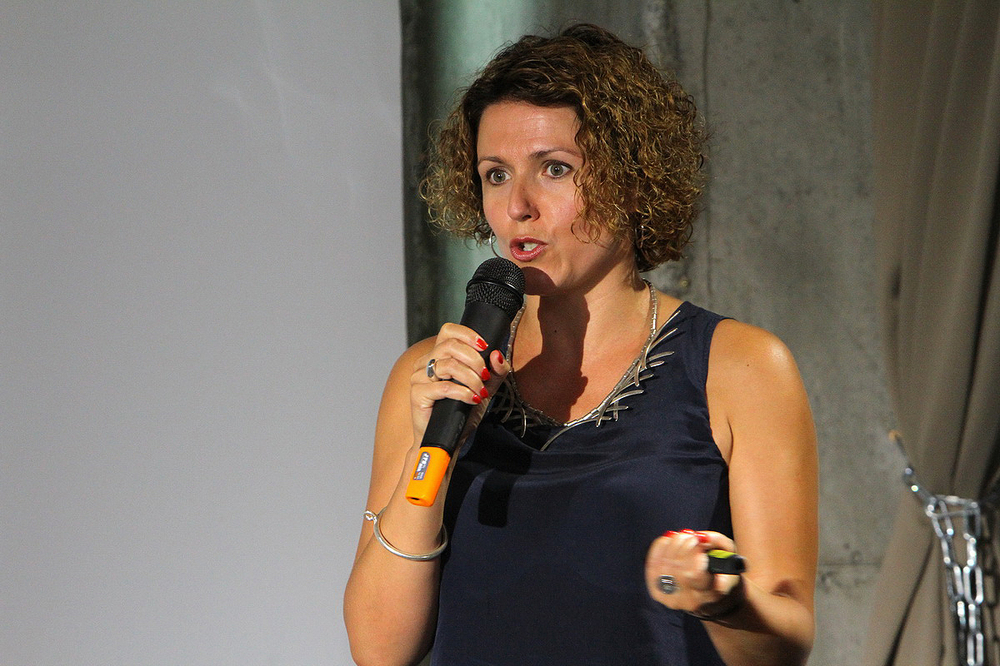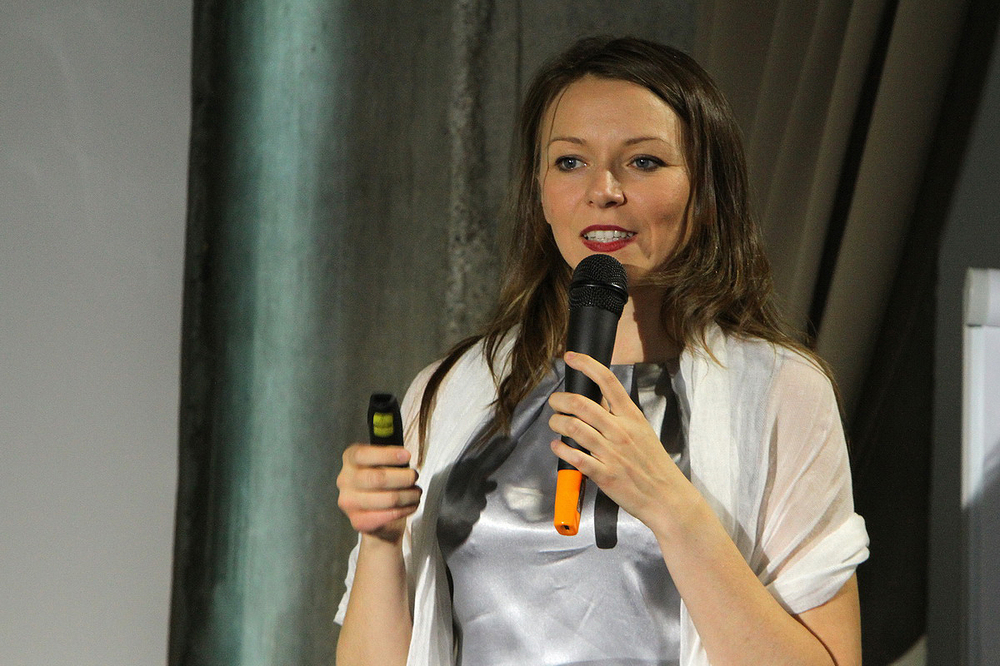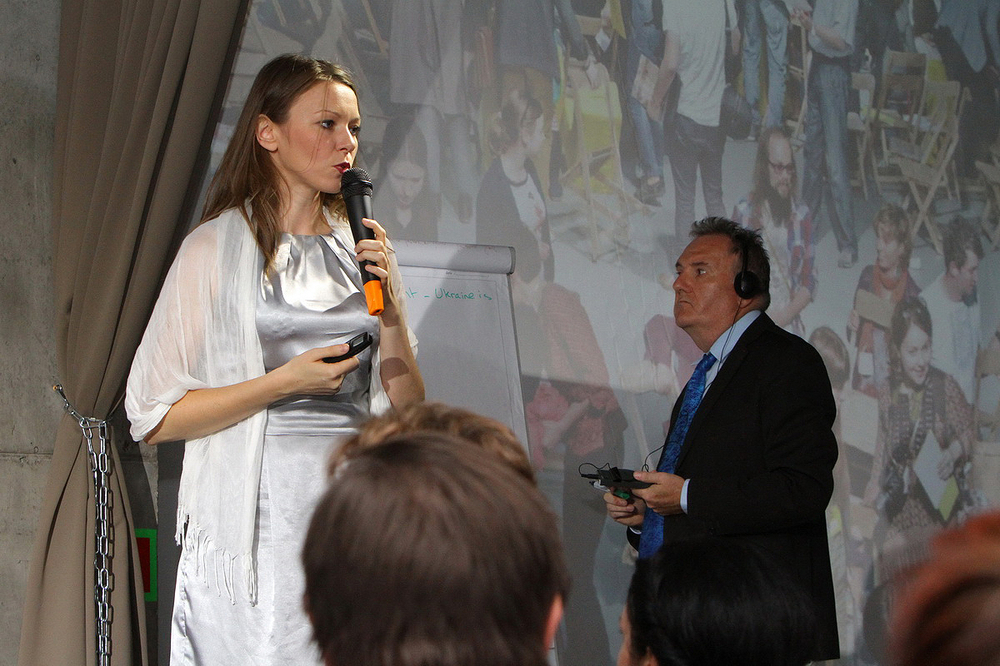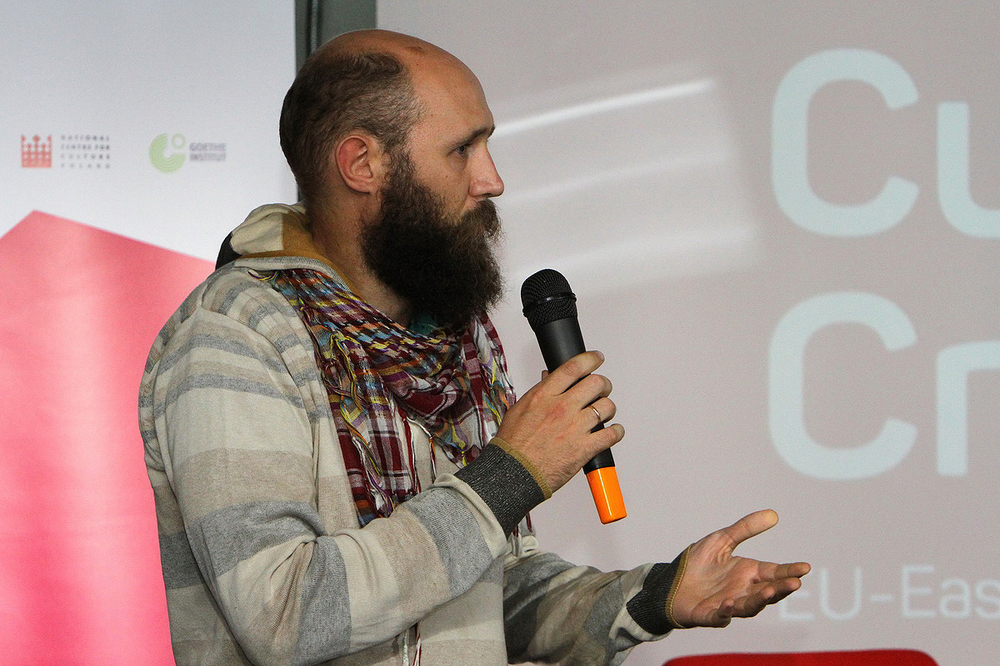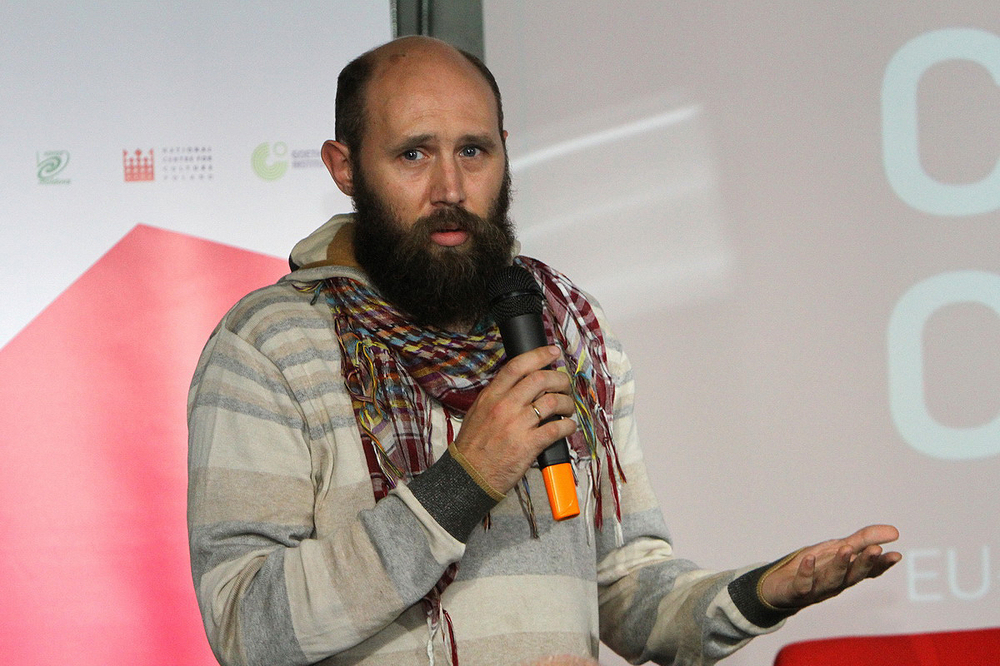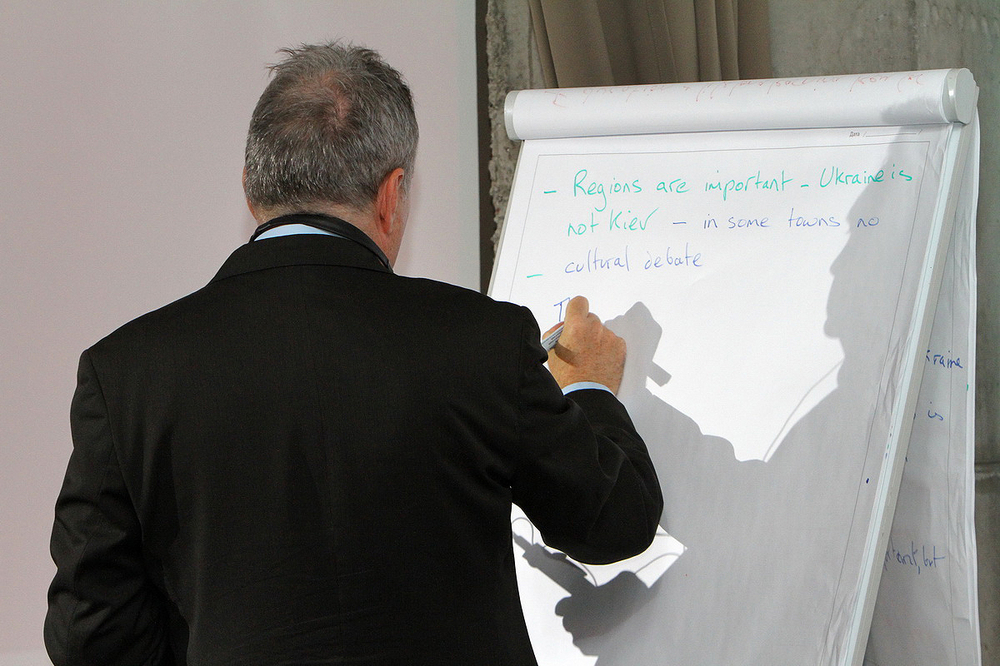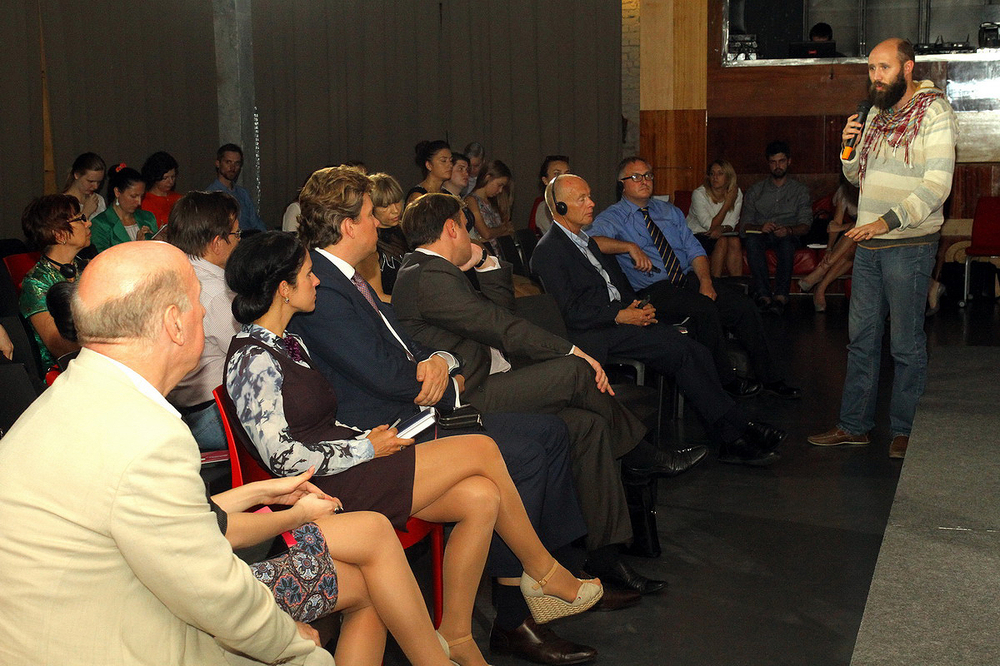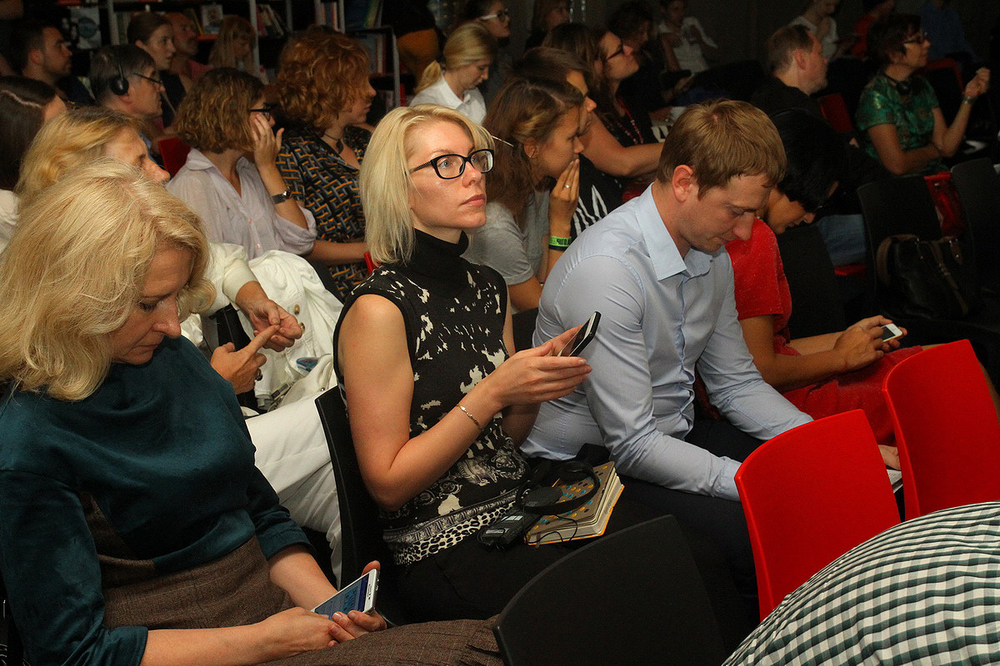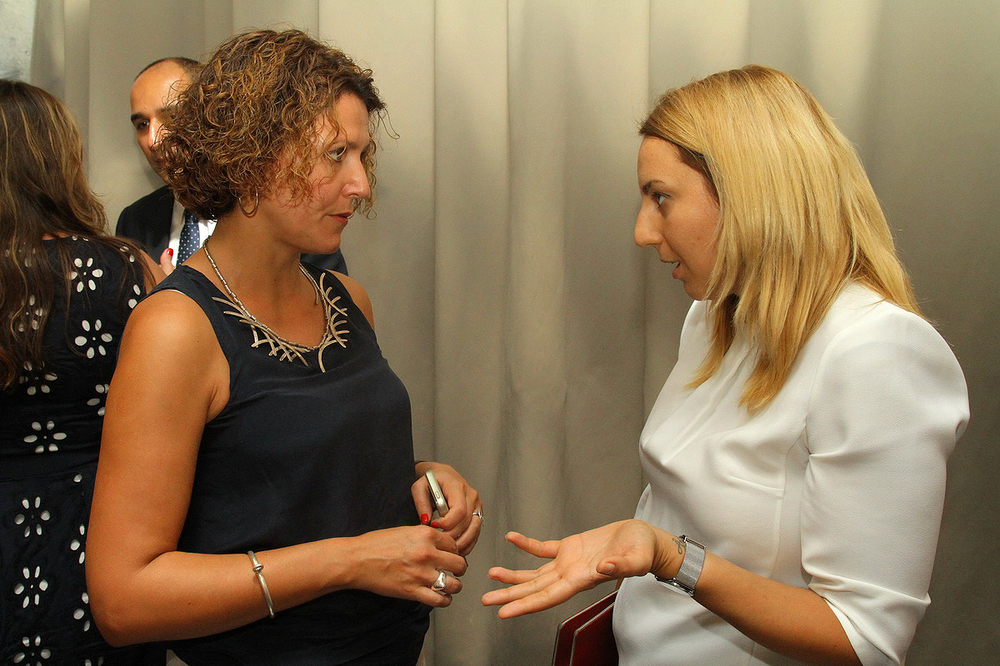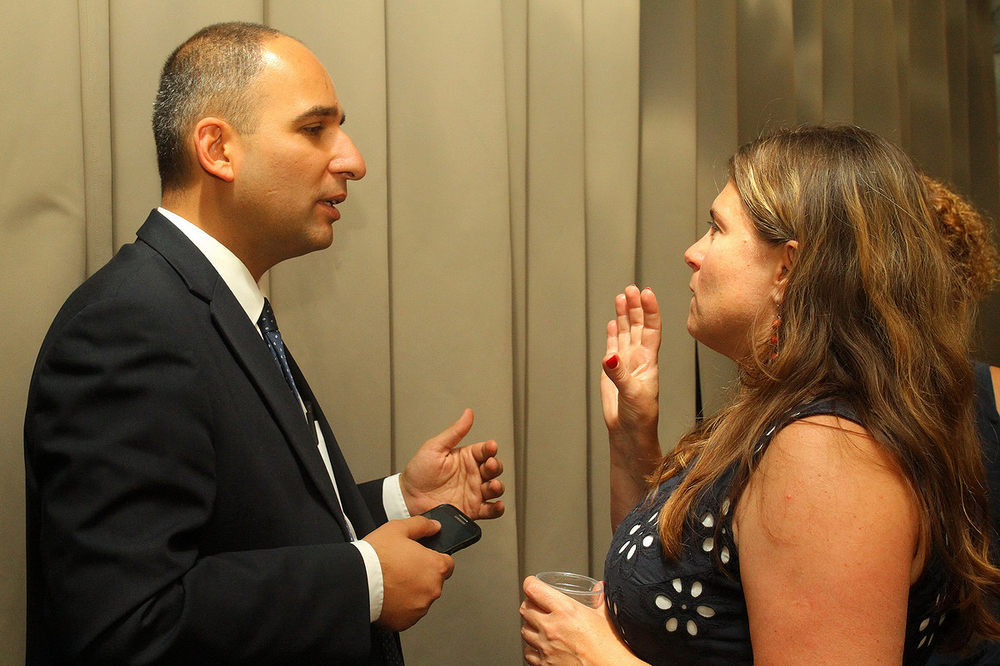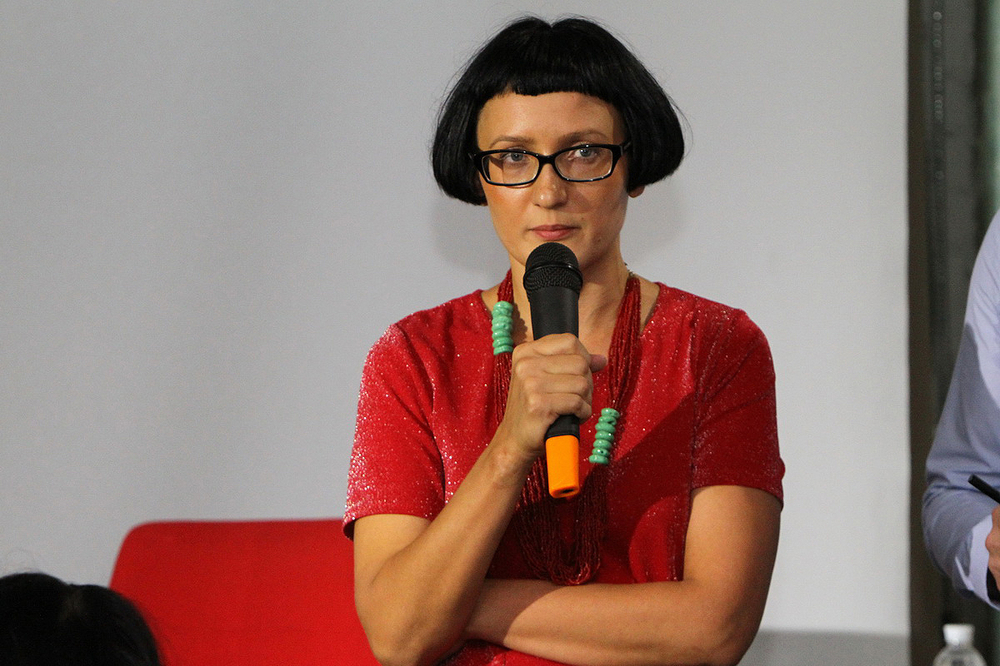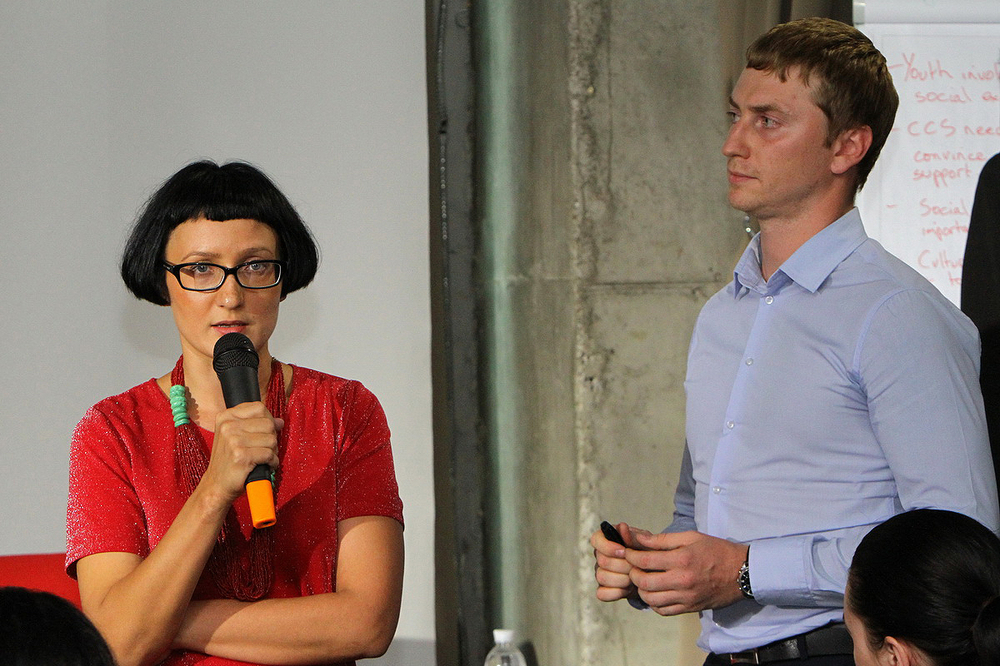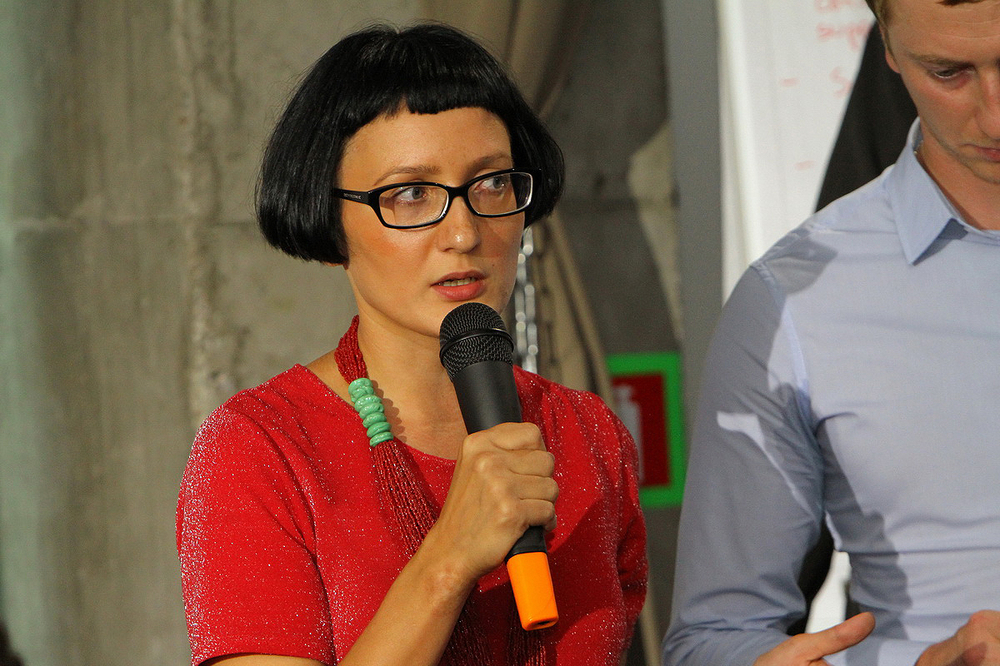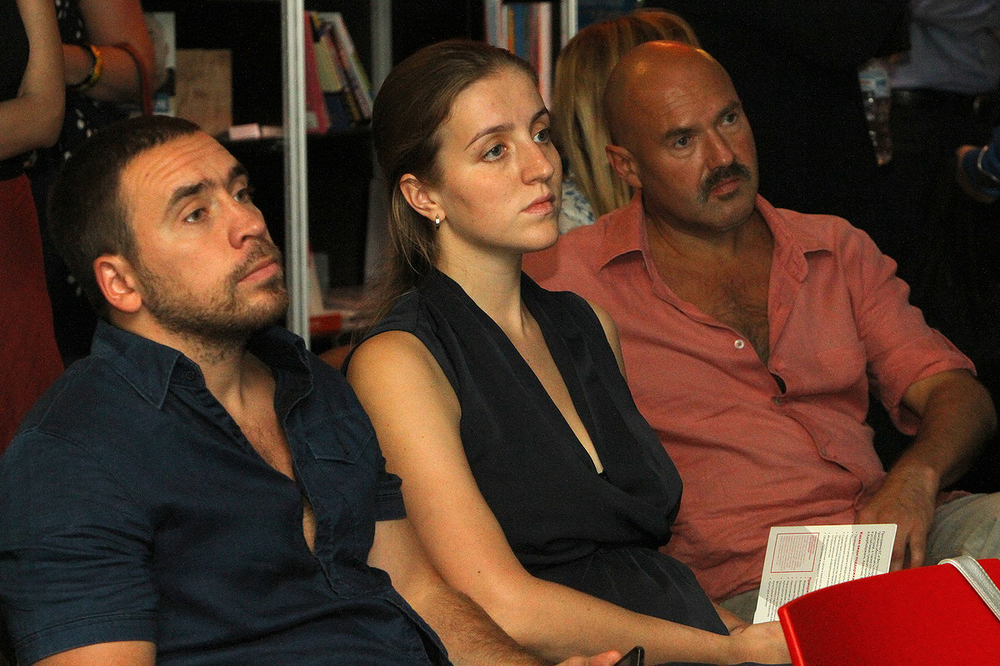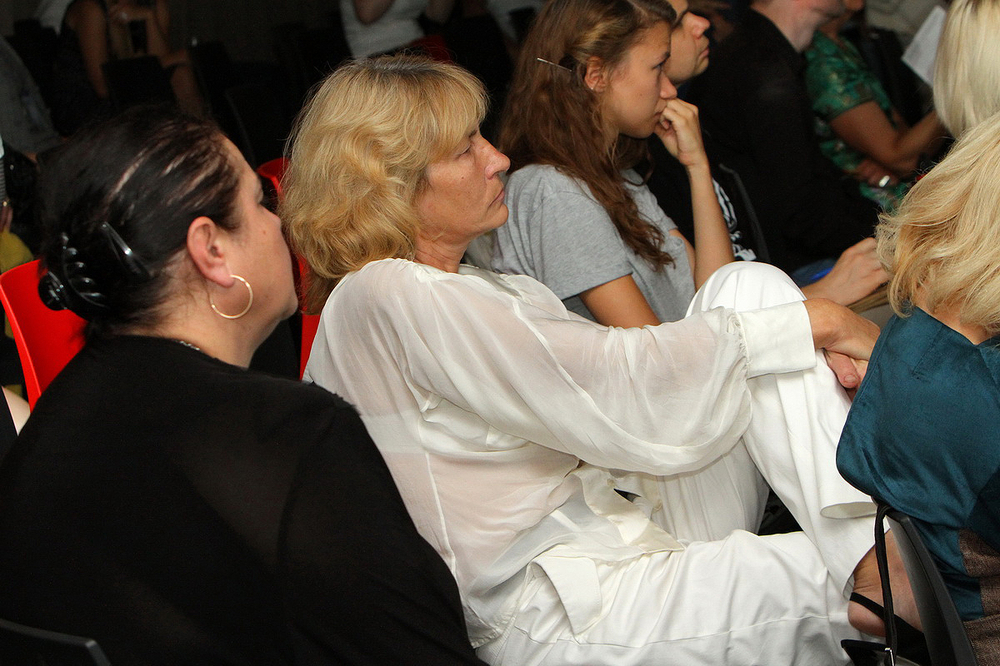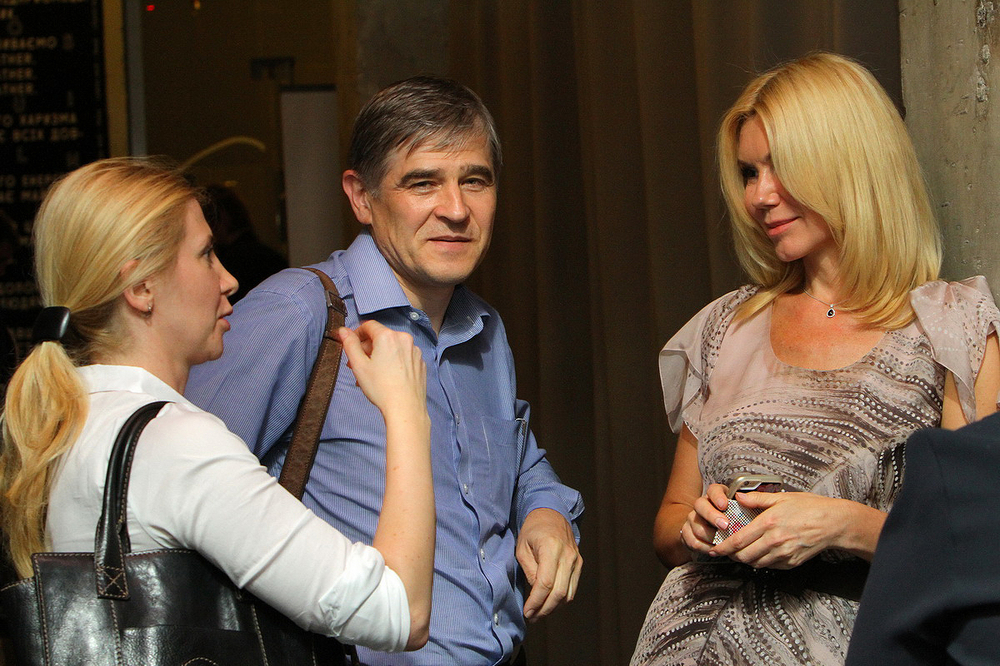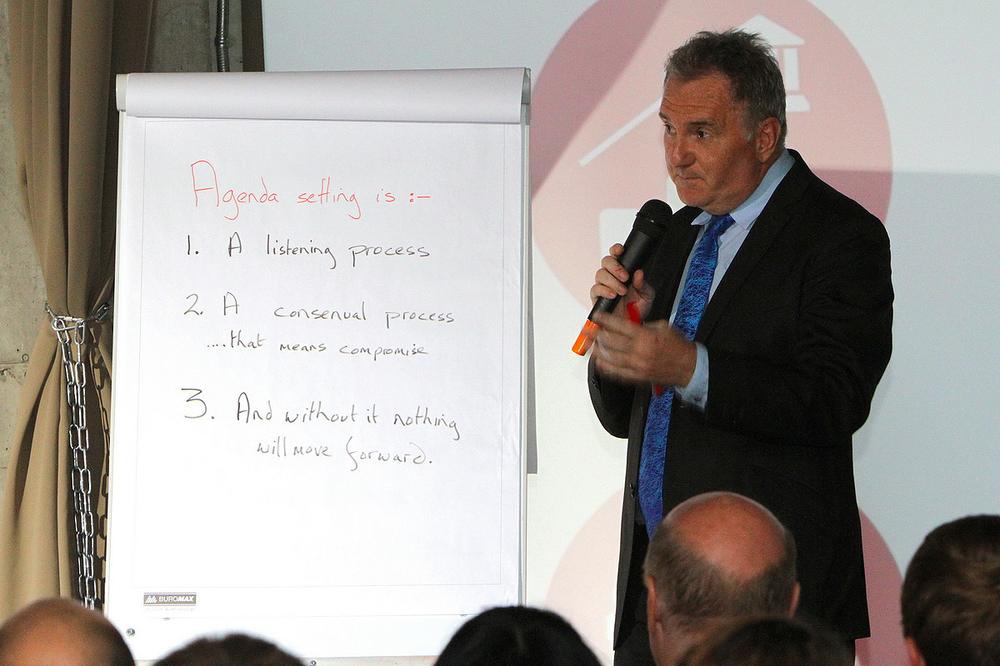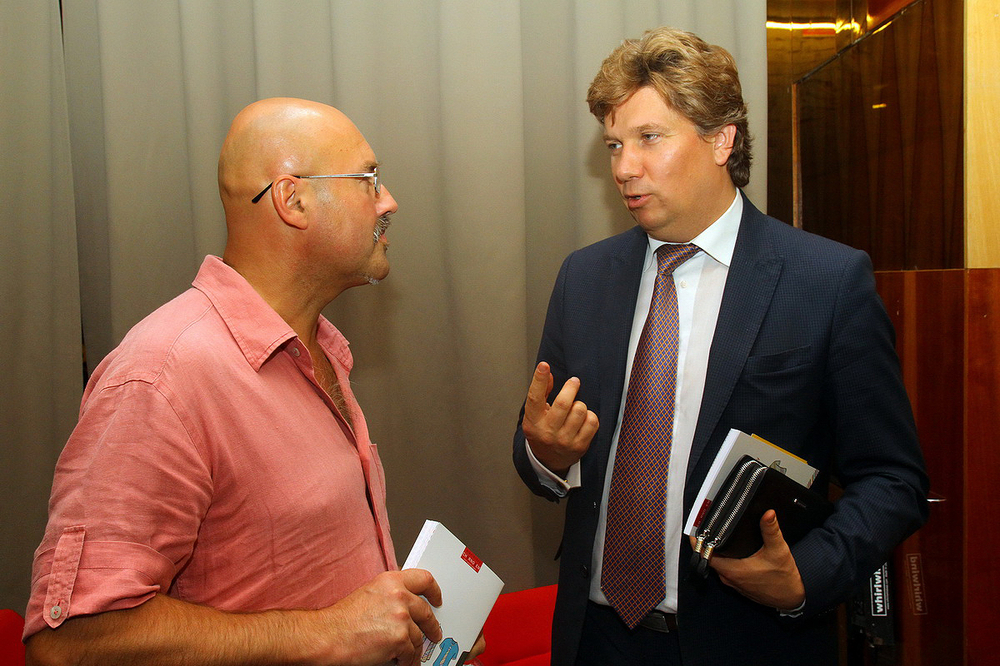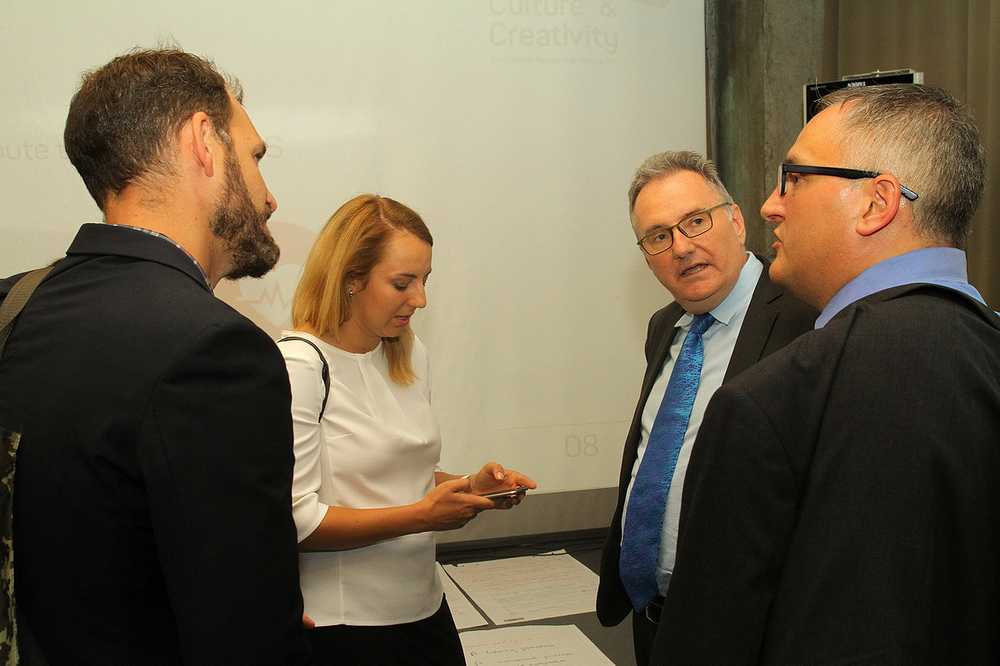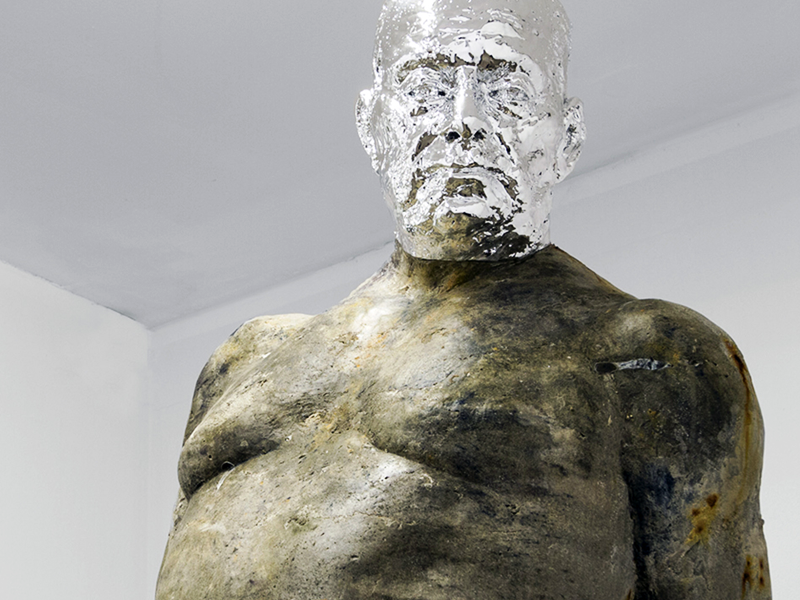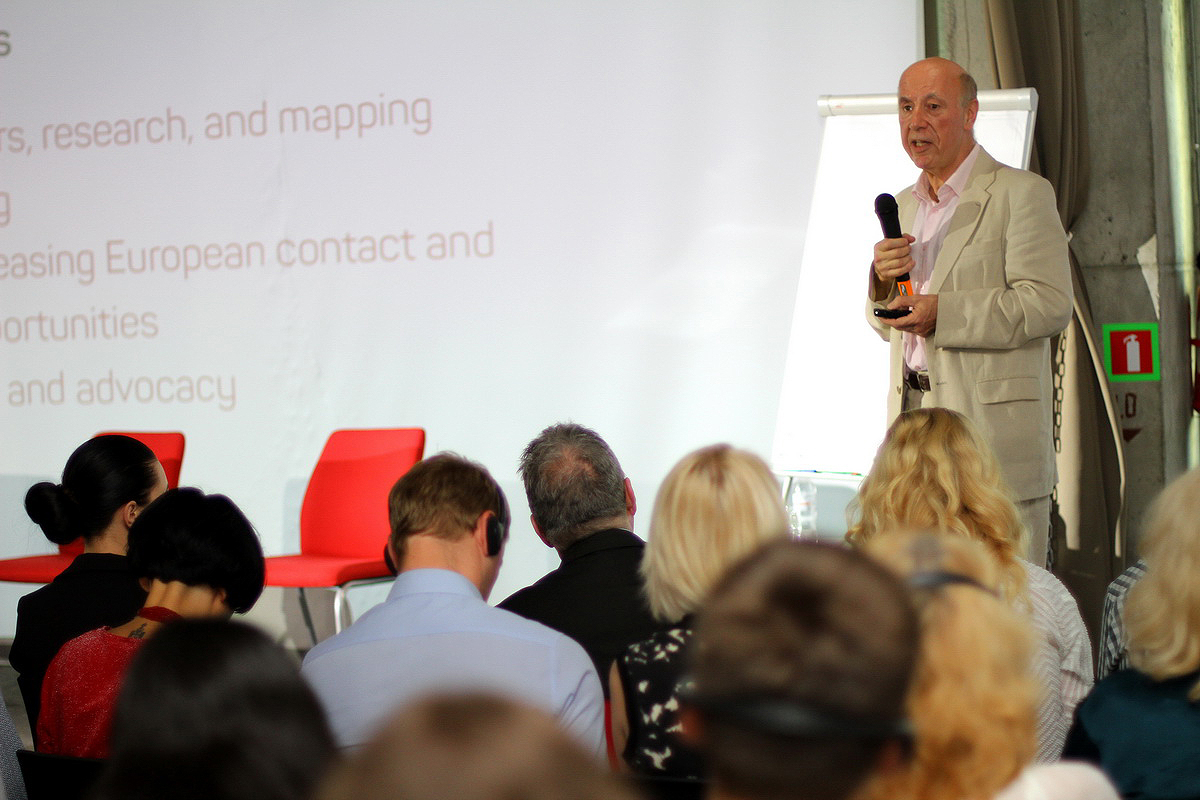
Agenda setting session for cultural and creative industries in Ukraine: open discussion
Here are key points on which the emphasis was put during the event:
On the level of awareness about culture and creativity sectors in EaP countries
“There is a problem of the whole region [Eastern Partnership countries] – the lack of information about the cultural and creativity sectors.
Many ex-ministers and ex-deputy ministers of culture in the region will tell you that when they were in the office one of the real problems for them was to try to formulate policy; that often complete absence of usable and strategic management information available.
And this is one of the things we are trying to address through the Programme within the next three years.” (Terry Sandell)
On the old-fashioned perception of culture
“One of the problems in the region, including Ukraine, is an issue of culture, its modern sense and role that it could play in modernising society and economy. It is not clearly understood as it might be. In fact, there is a certain legacy of the definition of culture, where the definition of culture is often rather narrow and even based on the XIX century concepts or ideas of classical culture [mixed] with the bit of Soviet folklore thrown in.
One of the problems of the region is that basically Soviet understanding and definition of culture still continues. That actually puts barrier for some of energies and possibilities that cultural and creative sectors and industries can bring to the country.” (Terry Sandell)
On the economy-related and jobs creating potential of culture and creative sectors
“In Europe and many other parts of the world, cultural and creative sectors are actually becoming very important mottoes of social and economic change. For example, the cultural industries in many countries are very significant in economic terms; not only in traditional economic terms, but in terms of employment generation.
In many countries, culture and creative industries are the places where the most jobs are being generated, they are often the biggest employers for young people and they are becoming very significant not only from cultural point of view, but also very much from the development and economic point of view.” (Terry Sandell)
“Creative industry can contribute to economic re-integration. The city of Liverpool supports more than 200 arts organizations – from the Liverpool philharmonic orchestra and Everyman Theater right down to smaller community art enterprises. And the message of Liverpool City Council to them was: look, guys, we love you, we support you, but maybe in the future we will not have as much money to give you for grants, so you need to start thinking in a more entrepreneurial way, you need to look at ways to generate income from entrepreneurship. And to help them to do that they put together the programme – that I led – which helped them thinking not just about how to get more grants, but helped them thinking in a more entrepreneurial way.” (David Parrish)
On the involvement of foreign experts in cultural policy development process in Ukraine
“No one from abroad can tell you what should be right in your culture policy. Nobody really understands [this] from abroad. What we can do and what is my role, as I saw it from the very beginning, is to help you in designing the process. I don’t exactly know what is right or wrong for this country. Only you, experts, know.” (Ragnar Siil)
On how the culture is being funded
“For governmental institutions, it is a very simple question: how we get more money to the cultural budget?
In Estonia, we took political aspect out of the culture funding, and we have experts’ opinion ruling who gets money and who does not. We also connected the main part of culture funding directly with tobacco, alcohol, lottery taxes. And that means that our government does not have to fight for certain amount of money [to come] every year, because it comes automatic.
Culture needs to be mainstreamed in other policy areas.” (Ragnar Siil)
On society’s expectations
“If you look from the governmental position, one of the biggest problems is that people are impatient. People want quick results. But the [development of] cultural policy always takes much time.” (Ragnar Siil)
On the importance and potential of digitalisation of culture
“Digitalisation of culture gives huge opportunity for the regular culture; that means digitalisation of cultural heritage, making it more available, [emergence of] new business models and new revenue models for museums, for libraries.
The last decision of the ministry of education in Estonia was to earmark EUR 40 million from EU funding to develop a special programme for digitalised culture content. My own school in Estonia already uses iPads, so it does not need to carry books anymore. And also there is a school [in Estonia], where students from the first grade are compulsory studying programming.” (Ragnar Siil)
“There is a huge potential in cultural and creative industries.
In Liverpool, the old industries and the docks of manufacturing have gone. Many of the buildings are still there and they have been empty for a long time. Jobs disappeared. Liverpool, frankly, was on its knees. But now the same buildings are full of more than 200 digital enterprises that are working in digital animation, making adverts for banks, designing websites, being involved in [developing] computer games, doing business all over the world digitally; they – recording studios, photographers, artists and architects – are doing amazing things.” (David Parrish)
On where the culture could be made
“In the UK, there are many old factories that once were private manufacturing companies. But now manufacturing is going to China. And these manufactories are now full of many creative, digital or cultural businesses. And the provision of workspaces is one thing that can be done, and that can be simply co-working spaces, hot desks, simple studios, business incubators, accelerators. So, there are many things that can be done to help the development of creative and cultural industry.” (David Parrish)
Some features and problems
“All cultural developments, that can be observed in Ukraine in the last two to three years, are catered to professionals, but do not take into account the citizen-consumer of the cultural product, do not address his interests, stereotypes and habits.” (Tatyana Biletskaya, independent consultant on global development)
“The level of awareness of population, government employees and businessmen has to be raised on what creative industries are. The definition of culture requires a wider interpretation.” (Anna Medvedeva, communications director at Izolyatsia)
“In some regions, the civil society and the government sectors are not working together.” (Vasilev Denis, Head of the civil society organisation “Centre for development of business technologies and culture” in Zaporizhzhia)
“The authorities need to be persuaded that culture requires permanent support. It lies at the heart of social diversity and tolerance. Work should be done here and now, create a cultural product, formulate the social strategy of the cultural development of Ukraine. We have to live, realise the initiatives of the residents of cities, regions and villages, support the creative industries. Culture is a sphere of national security. If culture were at stake 10-20 years ago, we wouldn’t have a war.” (Nataliya Zabolotnaya, director of the museum complex “Mystetskyi Arsenal”)
The importance of effort consolidation
“The international experience is very useful, however Ukraine has its own experience that it can share with others, too. Creative, viable projects should be chosen as well as the use of best practices for cooperation between the civil sector and the government.” (Oksana Levkova)
“We are awaiting changes, but we should become the change ourselves! If we reconsider our thoughts and practices, everything will change around us. The most important thing that is missing is interaction and trust. And trust is created in mutual work and communication. The regions are also important–Ukraine is not just Kyiv. Every region has its features and needs separate representation.” (Elena Pravylo, Congress of Cultural Activists / Culture Alliance)
“We need to reform and modernise the cultural sphere. Alas, but today neither government, nor business, nor regular people is fully aware of its potential. This is the first issue that the relevant ministry should resolve. And our task is to help in this process, advocate the role of culture and build a long-term cultural strategy that would be the foundation of a cultural policy.” (Vladimir Kadigorb, RPR Culture / Culture Alliance)
Development priorities
-
Create opportunities for combining parallel cultural processes. The Ukrainian case is divided into an official and an unofficial culture, a fact that reduces the efficiency of what is happening culturally. This scenario of laissez-faire is called “investment in stagnation”, practically what the government is doing now: waste resources and efforts to stop any changes happening. For this to end, the heads of the schism between official and unofficial culture should be pushed aside; give equal rights the budget and non-budget sectors; create transparent mechanisms for even use of public resources; in reality make the unofficial non-budget sector visible not only for the Ministry of Culture but for the authorities in general; create opportunities for investment in innovators.
-
Create an efficient model of cultural production. Guarantee freedom of creativity to all professionals in the cultural field. In the first place, it concerns the budget sector, it is regulated and cannot grow. Barriers should be removed for the effective management in the budget sector. The sector approach to economic management should be replaced, and create a base that would help see the economic potential of various forms of cultural institutions. Delegate as many functions as possible to the non-budget sector.
-
Stimulate the innovative and educational potential of culture. Culture is a sphere of creating values and gaining citizen competencies. All institutes should become part of the educational process so that everyone from childhood understands how culture works and what it can offer a person. It is also necessary to stimulate educational incubators in the business sector.
-
If we need reforms, then we need other staff. Correspondingly, the standards of qualified education should be reviewed so that it is possible to open up to international best practices, invest in staff potential and stimulate the growth of people who are already working. Strengthen the role of professional unions.
-
Strengthen the role of culture as a factor of understanding in society. Stimulate and support international and intraregional cooperation among creators. Create a network where professionals can communicate with each other, share best practices; create a field where culture is a space for communication and the creation of something new. Support the international presence of the country by attracting competent creators. (Katerina Botanova, Culture 2025 / Culture Alliance)
Speakers quoted:
Terry Sandell – Head of the EU-Eastern Partnership Culture and Creativity Programme
David Parrish – Business Adviser for Creative Entrepreneurs, Director of T-Shirts and Suits Ltd, Business Consultant, Trainer, Speaker, Writer.
Ragnar Siil – Estonian Undersecretary for the Arts, International Adviser of Georgian and Ukrainian Ministries of Culture. Founder and Managing Partner of Creativity Lab Company.



